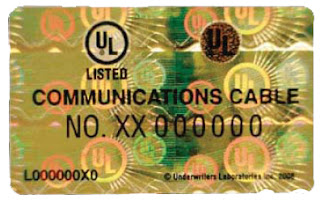I have been in the Datacom/Telecommunications industry for over 20 years now and I can hardly believe how fast the time has flown by. When I first started at Datcom I was working in the production area making both fiber and copper cable assemblies. So I know quite a bit about the history and evolution of connectivity.
Much has changed since then and many of the cables we made are no longer used and have been replaced by the most common of cables the humble Ethernet patch cord.
Despite its appearance a lot of R&D has gone into its components and specifications over the years. Soon these cables and components will be adjusted again to support the emerging Cat8 cabling standard. But despite this change there is one thing I know should never change and that is quality.
Certainly I understand that our economy is now global and that our industry is now hyper-competitive; however when it comes to connectivity quality matters. Too many times I have spoken with clients who chose to go with the lowest price when it comes to installs and cable assemblies and I would say that 90% of the time they end up spending more money in the long run replacing products that just don’t meet operational specifications.
This issue has been well documented in our industry and we now have an industry watch dog in the CCCA which is helping us be informed when it comes to fake or substandard products in the market place. This article on patch cables is one example:
Testing by CCCA Finds High Failure Rate in Electrical Performance of Imported Category 6 Copper Patch Cords - See more at: http://cccassoc.org/news/press-releases/testing-ccca-finds-high-failure-rate-electrical-performance-imported-category-6-copper-patch-cords
For this reason I felt compelled to give my customers and others a dissection of what makes a patch cable good and what to look for when buying products. The points below high light what would be considered bad and the linked photos show what would be good.
1) There is no mfg name on the jacket. (Bad)
2) There is no UL or CSA mentioned on the jacket. (Bad)
3) There is no TIA standard listed on the jacket. (Bad)
4) There is no mfg name on the components. (Bad)
5) The connector looks to like C5 not C6. (Bad)
6) Connector does not have an insert or technology designed to reduce cross talk. (Bad)
7) The jacket material itself, especially within the connector looks either kinked or twisted (Bad)
8) The actual lack of twists in the conductors in the upper portion of the connector looks to long as defined by the standard. (Bad)
9) The plating on the pins looks a little tarnished. (Bad)
10) The front view of the conductors also looks like the cable may be Copper Clad Aluminum. (Bad)
And last but not least the ugly.
o learn more about what goes into our in house manufactured cable assemblies give us a call. 1-800-427-2055




